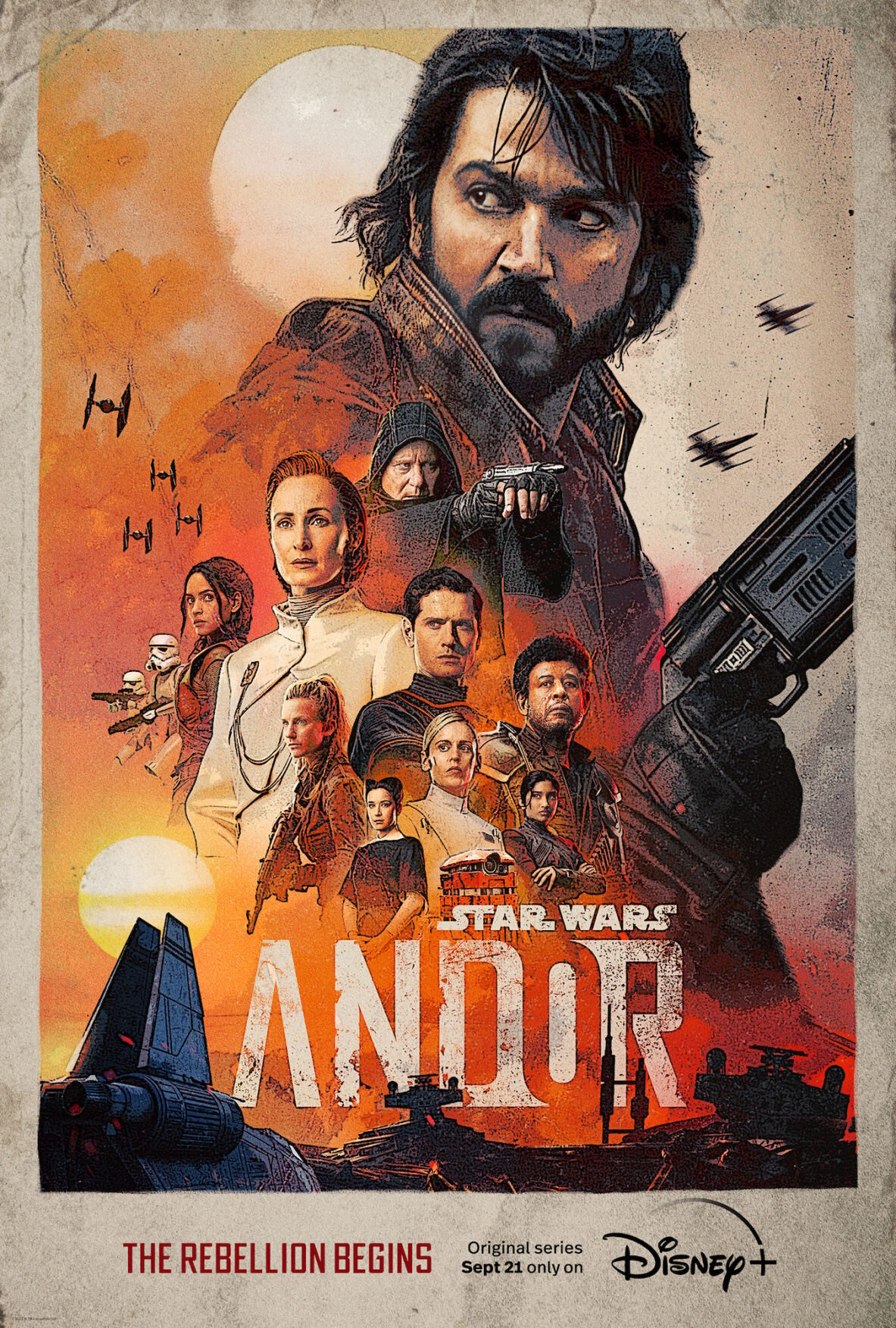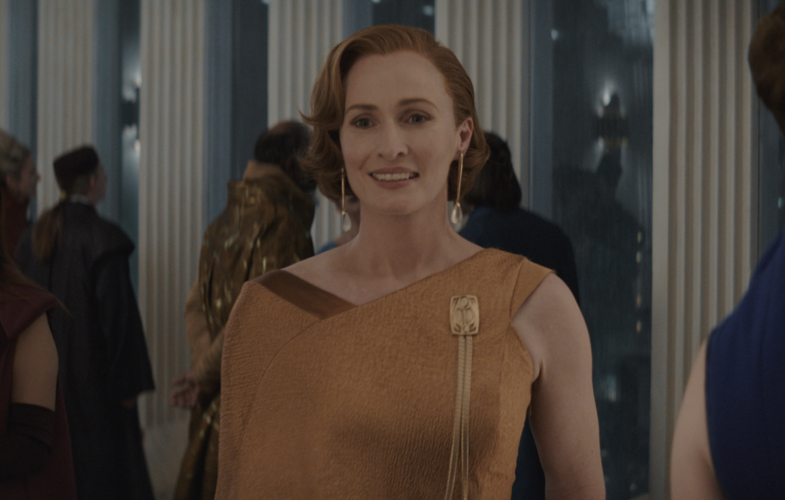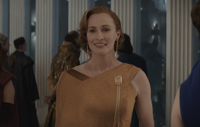
"Andor" poster on Disney+. (2022 Lucasfilm. All Rights Reserved.)
Season Two of "Andor" premiered in April, arriving three years after the debut season and nearly a decade following the release of “Rogue One.”
The series stars Mexican actor Diego Luna in the title role, reprising his portrayal of Cassian Andor. Other recurring faces from the previous season include Puerto Rican actress Adria Arjona as Bix Caleen, Stellan Skarsgård as Luthen Rael and Star Wars veteran Genevieve O'Reilly as Mon Mothma.
The success of "Andor" took many by surprise. Showrunner Tony Gilroy transformed a relatively obscure “Rogue One”character into what many fans now consider one of the most beloved heroes in the Star Wars universe. Since acquiring Lucasfilm in 2012, Disney has faced the challenge of balancing nostalgia for longtime Star Wars fans with the need to engage a new generation through fresh characters and storylines.
Admittedly,"Andor" is a slow burn, but its deliberate pacing pays off in a gripping and emotionally resonant finale. The final six episodes of Season Two, in particular, represent a masterclass in character development and narrative precision. Rather than relying on spectacle, the series meticulously builds tension, focusing on the political and personal forces that enable the Empire to rise. It also deepens the mythology of the Star Wars universe, offering a nuanced portrait of the people on the “ground” who sacrifice the most for the rebellion’s cause.
Although production on "Andor" began years ago, its political themes feel remarkably timely and relevant. The series offers a sharp critique of how fascism takes root—not through sudden coups, but through bureaucracy, complacency and systemic overreach. It mirrors the disturbing realities of our own political landscape, particularly the consequences faced by those who dare to challenge authoritarian tactics.
Episode Eight of Season Two, titled “Who Are You?”, stands out as one of the series’ most highly rated entries. The episode explores the escalating tensions between the Empire and the people of Ghorman, portraying how the regime manipulates propaganda and incites unrest to tighten its grip. The resulting massacre of civilians is framed as “justified,” a chilling reflection of how violence is often sanitized through state narratives.
This episode encapsulates the show’s brilliance in revealing how oppression is normalized and defended.
Gilroy said that during the process of creating the show, he was given creative liberty in how to approach the series, but that he wanted to ensure by the end it was a “definite work about revolution.” He cites his inspiration as historical, focusing the show on how authoritarian regimes weaponize propaganda, utilize media, engage in colonialism and cause the large-scale destruction of planets.
Another aspect of "Andor" that is written with remarkable accuracy is the portrayal of the fragmented nature of the rebellion. The series captures the internal divisions among resistance groups, such as the ideological rift between the extremist faction led by Saw Gerrera and the more centralized Rebel Alliance, which regarded him with suspicion and disapproval. Even fan-favorite Luthen Rael was widely mistrusted within the Alliance and seen by many as calculating and manipulative, despite his critical contributions to the cause.

Mon Mothma (Genevieve O'Reilly) in Lucasfilm's "Andor," on Disney+. (2022 Lucasfilm Ltd. & TM. All Rights Reserved)
"Andor" also underscores an understated truth about the rebellion: revolution does not materialize overnight. Cassian Andor is shaped by displacement and violence, not only from the Empire but from the Republic. Over two seasons, the series traces his evolution from a detached survivor to a committed rebel leader. He is unjustly imprisoned, relentlessly pursued and witnesses atrocities such as the massacre on Ghorman, each experience pushing him closer to radicalization.
O'Reilly, as Mon Mothma, delivers a riveting speech at the Imperial Senate in Episode Nine. She asserts that “the death of truth is the ultimate victory of evil,” marking a turning point for her character in the series. In an act of selfless defiance, she openly condemned the genocide against the Ghormans and the cover-up by the Empire. “When truth leaves us, when we let it slip away, when it is ripped from our hands, we become vulnerable to the appetite of whatever monster screams the loudest,” she proclaims.
The brilliance of "Andor" lies not only in its powerful storytelling and immersive production design but also in its unflinching ability to hold a mirror to its audience. The series compels viewers to confront the ease with which societies can slide into authoritarianism, often through engineered consent. At the same time, it offers a sobering reminder that the legacy of colonial violence is inescapable, and its repercussions are deeply embedded in both personal and collective histories.
In a time when democracy seems to be crumbling, shows like "Andor" remind us that rebellions are built on hope.












(0) comments
Welcome to the discussion.
Log In
Keep it Clean. Please avoid obscene, vulgar, lewd, racist or sexually-oriented language.
PLEASE TURN OFF YOUR CAPS LOCK.
Don't Threaten. Threats of harming another person will not be tolerated.
Be Truthful. Don't knowingly lie about anyone or anything.
Be Nice. No racism, sexism or any sort of -ism that is degrading to another person.
Be Proactive. Use the 'Report' link on each comment to let us know of abusive posts.
Share with Us. We'd love to hear eyewitness accounts, the history behind an article.